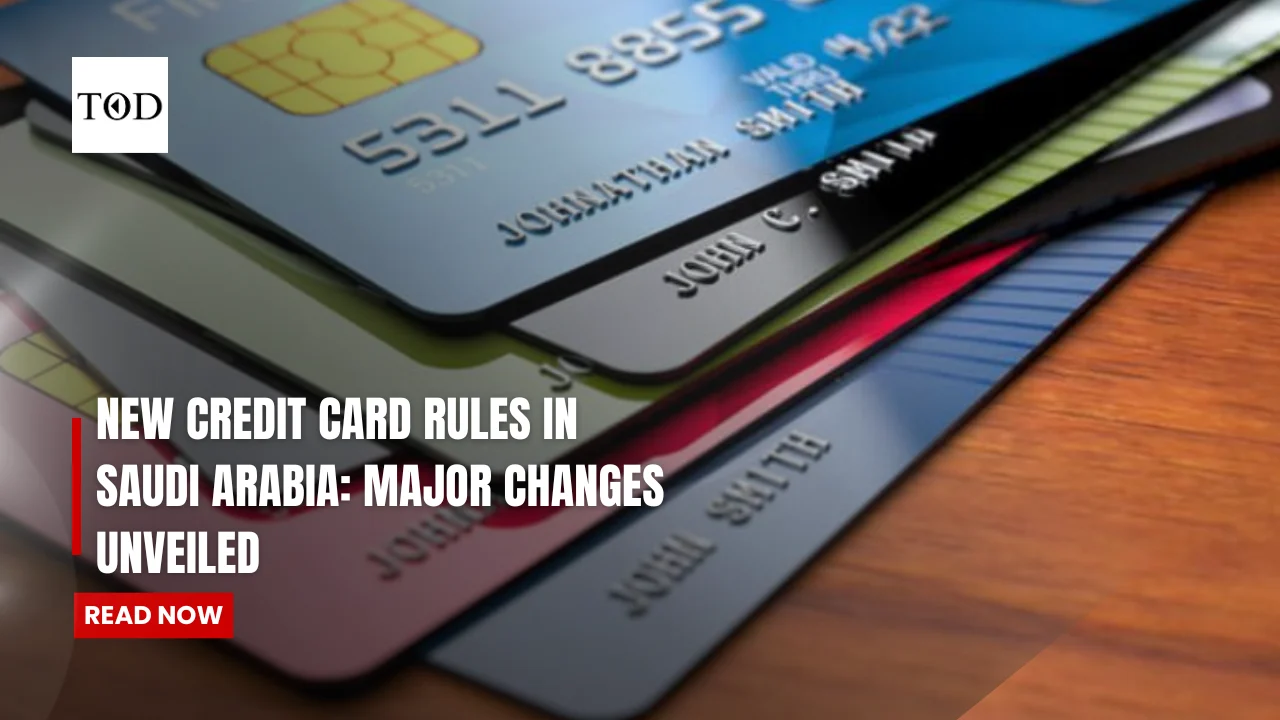June 24, 2025 | Dubai, UAE- The Saudi Central Bank of Saudi Arabia (SAMA) has formally declared new credit card rules in Saudi Arabia. It aims at increasing honest economic dealings, ensuring consumer safeguards, and developing trustworthy credit usage. This step is one of the parts of the reforms under Vision 2030. This initiative seeks to reform the Kingdom’s financial system in line with global standards.
Better Clarity of Terms And Conditions for Credit Card Users
Banks and financial institutions are instructed to deliver the terms and conditions in clear and easily understandable language under the new credit card rules in Saudi. All customer-facing promotions, interest rates, and fees must be revealed in simplified terms. Additionally, they ensure customers thoroughly acknowledge their contractual liabilities and legal rights under the new credit card rules in Saudi.

“This is a pivotal move toward reinforcing honesty between financial sectors and consumers. We are elevating financial literacy standards and equipping users with the tools they need to make informed decisions,” said Fahad Al-Mubarak, Governor of SAMA.
Alongside user-friendly contracts, financial institutions must provide clear repayment timelines, annual percentage rates (APR), and information on overdue payment charges included in all account-opening documents.
Credit Charges For Regulatory Caps
The new credit card rules in Saudi, are structured to prevent consumers from excessive interest and hidden fees. It reveals strong caps on annual percentage rates (APR) and late fee structures. It makes sure financial institutions and lenders must now charge fair and reasonable charges on outstanding balances. Banks and lenders could breach these rules, which could lead to regulatory sanctions, public disclosure of violence, or suspension of credit card issuing privileges in new credit card rules in Saudi.
“Our vision is to eliminate exploitative lending practices while maintaining a viable lending circumstance for financial institutions,” reported Al-Mubarak
Reform in Minimum Payments and Risk Assessments
Under the new rules, one major change is the inclusion of required minimum payment policies depending on personal creditworthiness. Before releasing or raising credit limits, banks have to do more thorough affordability tests. This change is meant to lower household debt and inspire better borrowing practices. Institutions also have to routinely review cardholders’ financial situations to decide whether credit limits should be kept, raised, or lowered.

Digital openness and consumer convenience also take front stage in the new guidelines. Every bank has to provide digital channels where consumers may quickly view transactions, review fee breakdowns, and file complaints or disputes, additionally, real-time alerts for charges, interest accrual, and due dates. Working with the Ministry of Commerce, a centralized consumer complaint system will be introduced to let cardholders monitor and report unresolved problems.
Timeline of Implementation And Industry
SAMA has given a three-month window to implement the new credit card rules in Saudi completely to the financial institutions. Training sessions, upgrading the systems, and organizational inspections are being carried out across the substantial banks to fulfill the timeline requirements.
The Saudi Banking Association has stated its endorsement, marking the rules as a “timely and necessary evolution” for the financial field. Consumer Welfare Organisations also praised this reform, which helps to prevent economic distress and support fair and transparent.

As a regional leader, the Kingdom’s position is solidified in the Kingdom’s new credit card rules in Saudi Arabia to promote economic modernization and user security. This shift is in line with Vision 2030’s outcomes of making an economic ecosystem that is ingenious, equitable, and adaptable.
“This modification encompasses our responsibility of credit circumstances where user rights are secured and economic institutions are generated with full accountability,” Al-Mubarak concluded.
To ensure the consumer credit score remains stable, performance-oriented, and structurally sound.
Read More: Largest Data Breach of 2025: Over 16 Billion Passwords Leaked Globally














